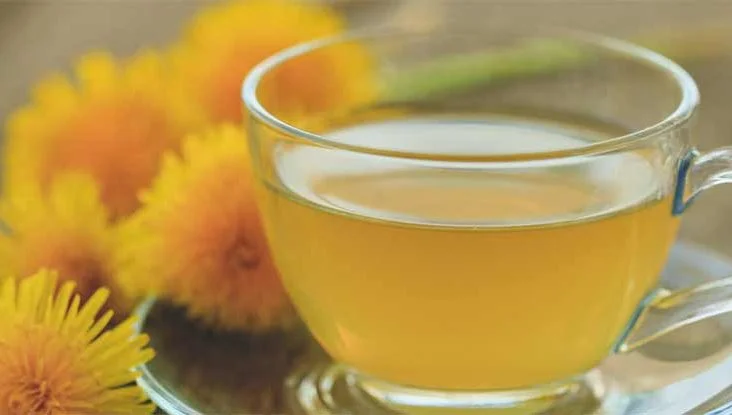WellHealthOrganic.com’s Herbal Teas are the perfect way to beat bloating and gas. Our teas are made with natural ingredients like ginger, peppermint, and fennel to help reduce bloating and improve digestion. Enjoy a cup of our herbal tea and feel the difference in your digestive health. Our teas are caffeine-free and easy to make, so you can enjoy them anytime, anywhere. Try WellHealthOrganic.com’s Herbal Teas today and start feeling better!
Introduction to Beat Bloating and Gas
Bloating and gas can be uncomfortable and embarrassing. It can cause abdominal pain, cramping, and even nausea. Fortunately, there are natural remedies that can help reduce bloating and gas. WellHealthOrganic.com’s herbal teas are one such remedy. Herbal teas are a natural, safe, and effective way to reduce bloating and gas. In this article, we will discuss what causes bloating and gas, how WellHealthOrganic.com’s herbal teas can help, the benefits of drinking herbal teas, types of herbal teas for bloating and gas, how to prepare herbal teas, how much herbal tea should you drink, potential side effects of herbal teas, tips for reducing bloating and gas, foods to avoid when experiencing bloating and gas, when to see a doctor, and FAQs.
What Causes Bloating and Gas?
Bloating and gas can be caused by a variety of factors. Common causes include eating too quickly, eating too much, eating certain foods, drinking carbonated beverages, and swallowing air. Eating certain foods can cause bloating and gas because they are difficult to digest. These foods include beans, cruciferous vegetables, dairy products, and high-fiber foods. Carbonated beverages can cause bloating and gas because they contain carbon dioxide, which is released as gas in the stomach. Swallowing air can also cause bloating and gas because the air is released as gas in the stomach.
How Can WellHealthOrganic.com’s Herbal Teas Help?
WellHealthOrganic.com’s herbal teas can help reduce bloating and gas by aiding digestion and relieving abdominal discomfort. Herbal teas contain natural compounds that can help reduce bloating and gas. These compounds can help relax the muscles in the digestive tract, which can help reduce bloating and gas. Herbal teas can also help reduce inflammation in the digestive tract, which can help reduce bloating and gas.
Benefits of Drinking Herbal Teas
Drinking herbal teas can provide a variety of benefits. Herbal teas can help reduce bloating and gas, aid digestion, and relieve abdominal discomfort. Herbal teas can also help reduce inflammation in the digestive tract, which can help reduce bloating and gas. Herbal teas can also help reduce stress and anxiety, which can help reduce bloating and gas.
Types of Herbal Teas for Bloating and Gas
There are a variety of herbal teas that can help reduce bloating and gas. Some of the most popular herbal teas for bloating and gas include peppermint tea, ginger tea, chamomile tea, fennel tea, and licorice tea. Peppermint tea can help reduce bloating and gas by relaxing the muscles in the digestive tract. Ginger tea can help reduce bloating and gas by aiding digestion and reducing inflammation in the digestive tract. Chamomile tea can help reduce bloating and gas by calming the digestive system and relieving abdominal discomfort. Fennel tea can help reduce bloating and gas by aiding digestion and reducing inflammation in the digestive tract. Licorice tea can help reduce bloating and gas by aiding digestion and reducing inflammation in the digestive tract.
Also Read: How Long To Cook Oatmeal In Instant Pot
How to Prepare Herbal Teas
Herbal teas can be prepared in a variety of ways. The most common way to prepare herbal teas is to steep the herbs in hot water for several minutes. You can also add honey or lemon to the tea for added flavor.
How Much Herbal Tea Should You Drink?
It is recommended that you drink two to three cups of herbal tea per day to help reduce bloating and gas. However, it is important to consult with your doctor before drinking herbal teas to make sure they are safe for you.
Potential Side Effects of Herbal Teas
Herbal teas are generally safe to drink, but there are some potential side effects. Some people may experience nausea, dizziness, or headaches after drinking herbal teas. It is important to consult with your doctor before drinking herbal teas to make sure they are safe for you.
Tips for Reducing Bloating and Gas
In addition to drinking herbal teas, there are other tips that can help reduce bloating and gas. Eating smaller meals more frequently can help reduce bloating and gas. Chewing food slowly and thoroughly can also help reduce bloating and gas. Avoiding carbonated beverages and chewing gum can also help reduce bloating and gas.
Foods to Avoid When Experiencing Bloating and Gas
There are certain foods that can cause bloating and gas. These foods include beans, cruciferous vegetables, dairy products, and high-fiber foods. It is important to avoid these foods when experiencing bloating and gas.
Also Read: WellHealthOrganic.com: An Easy Way to Gain Weight with Raisins
When to See a Doctor
If you are experiencing severe bloating and gas, it is important to see a doctor. Severe bloating and gas can be a sign of a more serious medical condition. It is important to consult with your doctor if you are experiencing severe bloating and gas.
Conclusion
Bloating and gas can be uncomfortable and embarrassing. Fortunately, there are natural remedies that can help reduce bloating and gas. WellHealthOrganic.com’s herbal teas are one such remedy. Herbal teas are a natural, safe, and effective way to reduce bloating and gas. In this article, we discussed what causes bloating and gas, how WellHealthOrganic.com’s herbal teas can help, the benefits of drinking herbal teas, types of herbal teas for bloating and gas, how to prepare herbal teas, how much herbal tea should you drink, potential side effects of herbal teas, tips for reducing bloating and gas, foods to avoid when experiencing bloating and gas, when to see a doctor, and FAQs.
Conclusion
Bloating and gas can be uncomfortable and embarrassing. Fortunately, there are natural remedies that can help reduce bloating and gas. WellHealthOrganic.com’s herbal teas are one such remedy. Herbal teas are a natural, safe, and effective way to reduce bloating and gas. In this article, we discussed what causes bloating and gas, how WellHealthOrganic.com’s herbal teas can help, the benefits of drinking herbal teas, types of herbal teas for bloating and gas, how to prepare herbal teas, how much herbal tea should you drink, potential side effects of herbal teas, tips for reducing bloating and gas, foods to avoid when experiencing bloating and gas, when to see a doctor, and FAQs. If you are experiencing bloating and gas, it is important to consult with your doctor to make sure it is not a sign of a more serious medical condition. Drinking herbal teas can help reduce bloating and gas, but it is important to consult with your doctor before drinking herbal teas to make sure they are safe for you.
FAQs
Q: What are the benefits of drinking herbal teas?
A: Drinking herbal teas can provide a variety of benefits. Herbal teas can help reduce bloating and gas, aid digestion, and relieve abdominal discomfort. Herbal teas can also help reduce inflammation in the digestive tract, which can help reduce bloating and gas. Herbal teas can also help reduce stress and anxiety, which can help reduce bloating and gas.
Q: What types of herbal teas are good for bloating and gas?
A: Some of the most popular herbal teas for bloating and gas include peppermint tea, ginger tea, chamomile tea, fennel tea, and licorice tea.
Q: How much herbal tea should I drink?
A: It is recommended that you drink two to three cups of herbal tea per day to help reduce bloating and gas. However, it is important to consult with your doctor before drinking herbal teas to make sure they are safe for you.
Q: Are there any potential side effects of drinking herbal teas?
A: Herbal teas are generally safe to drink, but there are some potential side effects. Some people may experience nausea, dizziness, or headaches after drinking herbal teas. It is important to consult with your doctor before drinking herbal teas to make sure they are safe for you.
Q: When should I see a doctor for bloating and gas?
A: If you are experiencing severe bloating and gas, it is important to see a doctor. Severe bloating and gas can be a sign of a more serious medical condition. It is important to consult with your doctor if you are experiencing severe bloating and gas.





